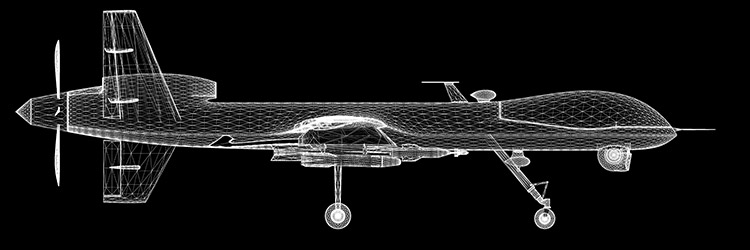Report says remote warfare tactics used by Western states are "coming back to haunt them"
A new briefing, commissioned by the Remote Control Project, finds that remote warfare tactics – the use of special forces, drones, private military and security companies (PMSCs) and cyber warfare – are coming back to haunt the states that use them, deeming these methods problematic and ineffective.

The proliferation of drones has provided terrorist groups with armed drone capabilities, presenting a major potential threat to key sites and personnel in West, says the report
The Remote-control warfare briefing #08, by Open Briefing, finds that the use of special forces in domestic terrorist attacks, such as France, Australia and Canada, risks transplanting Middle East battlefields to European cities.
Using special forces to respond to domestic terrorist attacks heightens the sense of moving the battlefield closer to home and is at odds with the dominant control paradigm and the preferred strategies of remote-control warfare (actioning warfare at a distance), revealing inconsistencies with the current security approach.
The fallout from the Sony hack reveals broader challenges in cyber security and shows cyberattacks to be the perfect asymmetric warfare for non-state actors, according to the briefing. Concerns over how to respond to cyber attacks are also raised, in particular the lack of clearly defined legal standards and international norms in the area. A recent report from the Remote Control Project, by VERTIC, warns that this lack of legal clarity and the highly securitised debate around cyber issues may have destabilising effects, including increased surveillance on citizens and a ‘cyber arms race’ between states.
In addition, the proliferation of drones has provided terrorist groups with armed drone capabilities that present a major potential threat to key sites and personnel in West. Over 20 unidentified drone flights have been reported over French nuclear power stations since October 2014 and a drone has also been seen flying over a nuclear power station in Belgium.
Drones could be used to target tourist sites and government infrastructure. In London, an increased use of drones around locations such as Tower Bridge, the Tower of London, and major shopping centres and airports have been reported, and in the US a number of arrests have been made for plotting to fly armed drones into buildings.
Furthermore, the use of PMSCs in conflict zones risk losing the state monopoly on the use of force and are increasingly being used in more theatres across the globe. Taken together, these developments show a worrying trend that remote warfare tactics are leading to unintended consequences, having a counterproductive impact on states that are using them, according to the report’s authors.